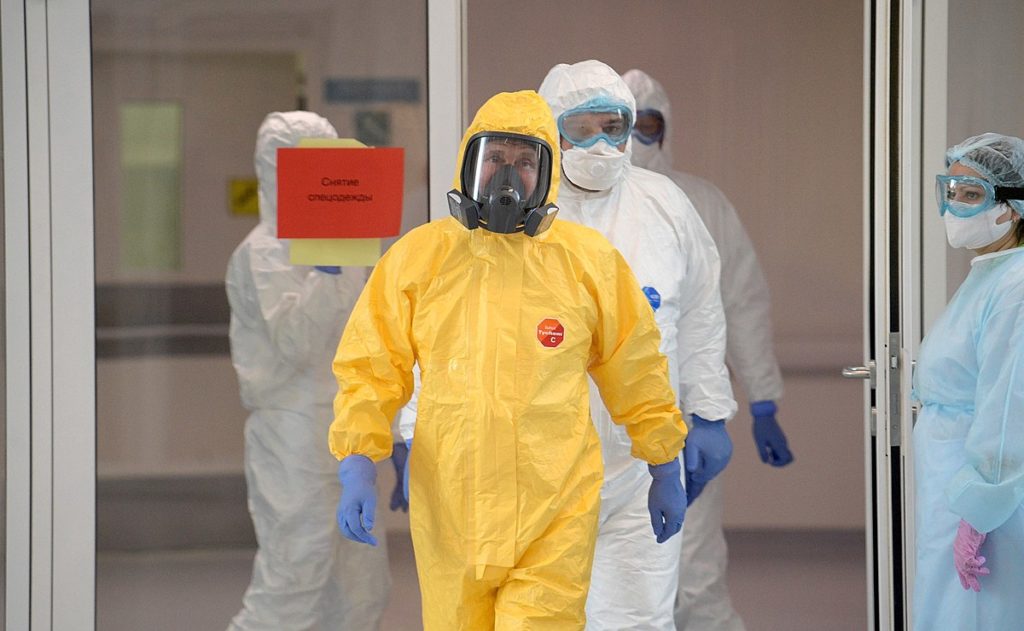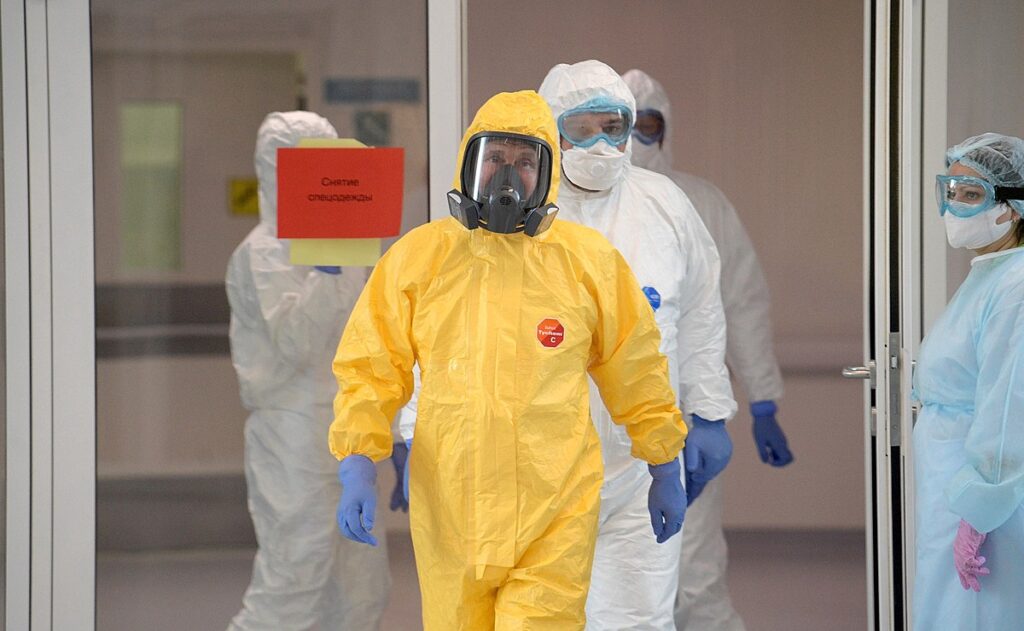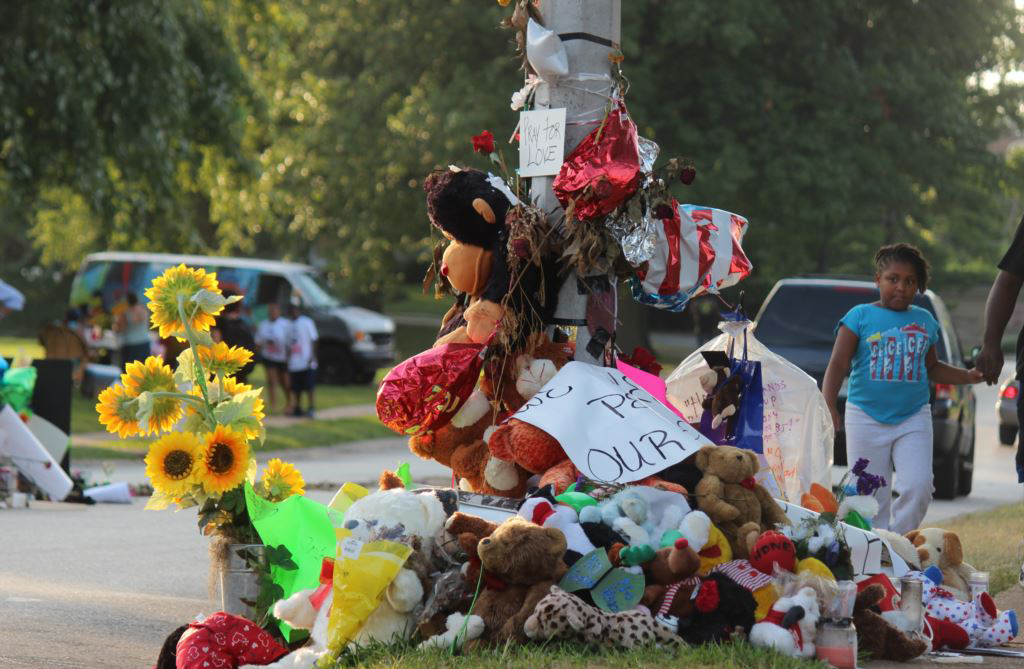
In an unprecedented move in early January, the Russian government resigned and President Vladimir Putin began proposing major constitutional reforms, including a revision that would reset his presidential term and allow him to stay in power past 2024. While Putin seemed poised to create a new, more conservative regime, his previously firm grasp over the Russian state is now coming loose as the result of a poor domestic COVID-19 response and internal conflicts among Russian elites. With increasing discontent among civilians and powerful authorities alike, the future of Putin’s Russia looks bleaker each day.
When the coronavirus outbreak began expanding globally in early March, Putin was optimistic about Russia’s ability to limit the spread of the virus within its borders, claiming the situation was “under control” and all infections were “contained”. However, as cases rapidly increased, Putin faded into the shadows, leaving Moscow Mayor Sergei Sobyanin to announce lockdown measures in the city and Prime Minister Mikhail Mishustin to encourage similar efforts among regional authorities. In addition, voting on the new constitutional amendments was postponed to a later date, and plans to celebrate the 75th anniversary of the Soviet Union’s victory over Nazi Germany in World War II were significantly scaled down.
Following the implementation of stay-at-home orders, the state of the Russian economy has continuously deteriorated. With major oil output cuts as a result of a global price war and a several week “non-working period” in which nonessential businesses were required to close, the Russian economic output in April was $33 billion less than the previous year. In addition, Russian GDP for the month fell by 28 percent. Although the Russian government has announced some economic programs to reduce the negative impact of coronavirus on civilians, such as cheap loans to businesses and increased unemployment benefits, economists and business people alike have criticized authorities for failing to provide adequate support to Russians. Projections show that the coronavirus crisis will decrease Russians’ disposable income by 20 percent in the second quarter of 2020 compared to the previous year, and a significant decline in living standards is expected. Moreover, unemployment is predicted to hit 8 million before the end of the year.
This is not the first instance of Russia’s economy retracting under Putin; in fact, real incomes in Russia have declined in five of the last six years. Moreover, official state statistics show that poverty has increased since the beginning of 2018, rising to 14.3 percent. This stagnation is largely as a result of economic sanctions implemented by Western powers in response to Putin’s annexation of Crimea in 2014. While the Russian government has announced a six-year, $400 billion National Projects effort to improve Russian education, health care, and infrastructure, consultants from Oxford Economics project that these programs will increase GDP growth by only 0.1 to 0.2 percentage points annually. Consequently, it is unlikely the economy will recover anytime in the near future.
Public support for Putin’s leadership is now at an all time low. When it comes to evaluation of the government, Russians tend to most highly value economic performance, domestic order, and international standing, all areas that Russia has been consistently lacking in. According to the Levada Center, in late April, Putin’s approval rating was at 59 percent, the lowest it has been since 1999. Furthermore, poll respondents believed that their regional authorities responded more effectively to the outbreak than Putin; 50 percent of respondents said that their governors or mayors were “doing their best to deal with the outbreak”, however only 46 percent agreed that Putin and the federal government were doing the same.
Not only is Putin losing public support, but there is also increasing division among the Russian elites who guide Putin’s policy choices. Some influential groups, such as state oligarchs, are more “liberal” and seek better relations with the West and reduced sanctions. Other longtime private sector associates of Putin, however, do not share these interests; for them, Western sanctions present an opportunity to improve their relations with the Kremlin. Consequently, there is a growing split between the former, who advocate for warmer relations with the West to improve their earnings from foreign markets, and the latter, who seek to deter the development of normalized relations with the West through promotion of increasingly radicalized “Putinism”.
As support for his policies has waned, Putin has resorted to a tried-and-true tactic to coerce patriotism and national unity: shifting attention to international adversaries. In this case, the Putin regime has targeted the Czech Republic, which incited anger in the Kremlin in February after it renamed Pod Kaštany Náměstí Square, where the Russian embassy in Prague is located, in memory of the late Russian political opposition leader Boris Nemtsov. Several weeks later, Prague district mayor Ondrej Kolar removed a statue of Soviet general Ivan Konev, prompting further indignation. Putin took advantage of this opportunity to redirect attention from domestic weaknesses to his consistently nationalistic foreign policy, signing legislation which criminalizes vandalism of Soviet war memorials located abroad. Moreover, Defense Minister Sergei Shoigu directly called for the prosecution of Kolar. However, not all actions have been so diplomatic; in April, Kolar was targeted by a Russian assassination plot and the Prague airport, along with multiple hospitals, have been attacked by suspected Russian hackers. These moves sent a clear message that anti-Russia policies in the Czech Republic will not be tolerated and sought to temporarily distract from an unsuccessful domestic response to the coronavirus outbreak.
Despite his attempts to distract from shortcomings at home, it is clear that Putin’s regime is beginning to crumble and this reality cannot be avoided forever. The coronavirus outbreak has only exacerbated existing issues with Putin’s domestic policy choices and propelled ordinary Russians to express their dissatisfaction with the status quo. If discontent continues to spread among elites that feel their own interests are being threatened by Putin’s choices, there may be enough support to challenge Putin’s rule.
The views expressed by the author do not necessarily reflect those of the Glimpse from the Globe staff, editors or governors.







